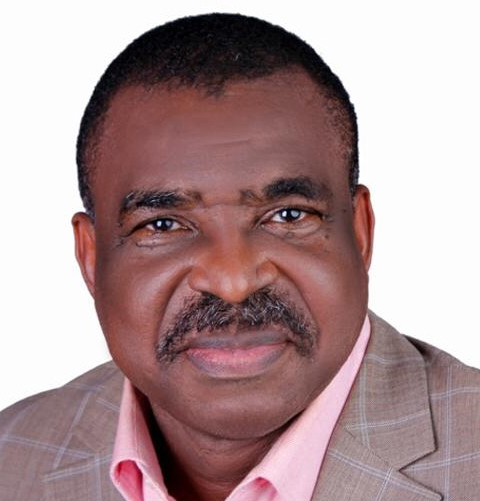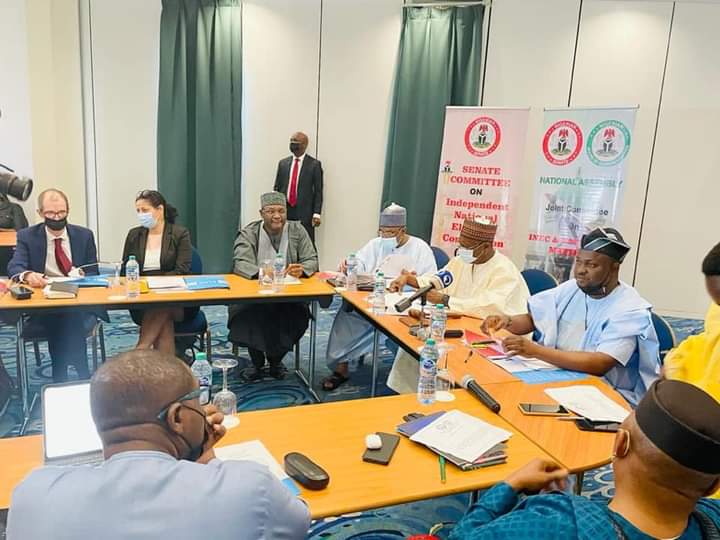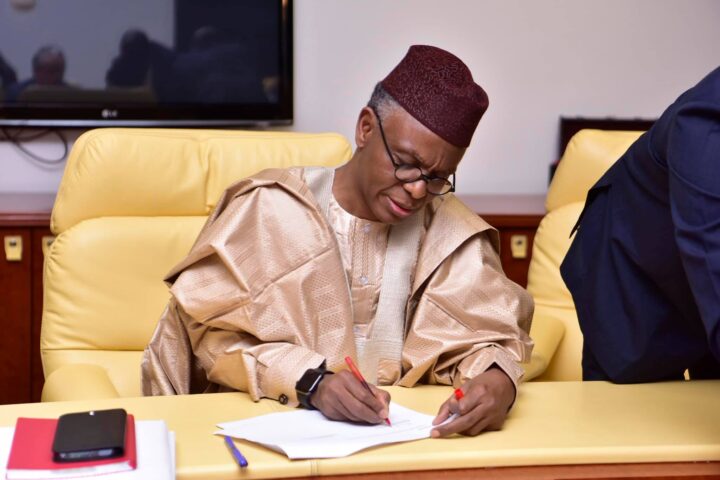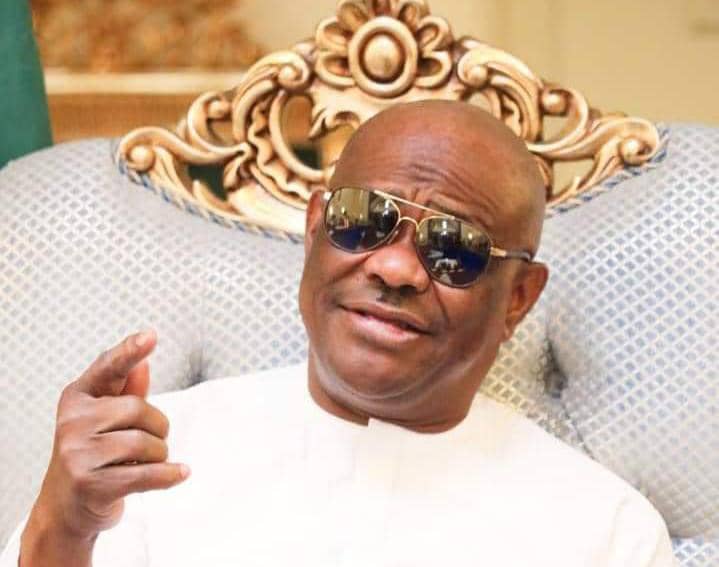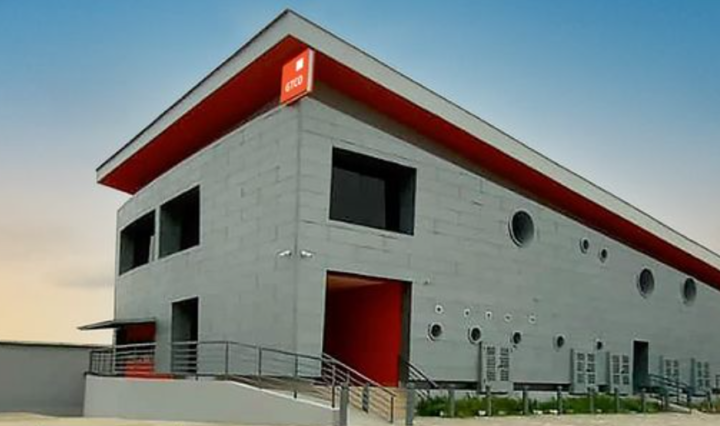The most appropriate note on which to commence this dialogue on the controversial clause 84(12) of the much-debated and anticipated electoral act 2022 is by adopting the aphorism when two elephants fight, the grass suffers. The reasons for applying the elephants’ metaphor may not be obvious. But it is simply because the final battle in the war to reform our country’s electoral system was between the all-powerful governors’ forum currently led by Kayode Fayemi, Ekiti State Governor on one side and the National Assembly, with Ahmad Lawan, the senate president and Femi Gbajabiamila, the Speaker of the House of Representatives as leaders of National Assembly, NASS, on the other side.
I will dwell further on the victor and vanquished aspects of the epic battle between both gladiators in the course of this discourse. But at this juncture, it is pertinent that we first of all focus on the commendable leadership sagacity exhibited by president Mohammadu Buhari in the course of birthing the newly minted electoral act 2022.
Now, some hawkish people in the presidency might have advised President Buhari not to be perturbed by public criticism whenever he gets tongue-lashed by some elders who speak out, no matter whose Ox is gored, and who are from across the regions ranging from Pa Ayo Adebanjo leader of Afenifere, from the southwest, Prof. Ango Abdullahi, head of Northern Elders Forum, as well as Prof. Ben Nwabueze, Chairman of Igbo Leaders of Thought and longest-living senior advocate of Nigeria from the southeast.
And the devil-may-care leadership style advocates on the corridors of presidential power would have justified their advice to President Buhari, not to be accommodating or tolerant of criticism and critics by sowing the nihilist idea into his mind that whatever he does as a leader would be considered as unsatisfactory and therefore criticized unnecessarily.
Advertisement
But following Mr. President’s commendable action of signing into law, the much desired and anticipated Electoral Act 2022 on Friday, February 25, 2022, and the massive applause that he has received from a broad spectrum of Nigerians, including the clergy and the international community alike for the exemplary leadership that he has exhibited in assenting to the bill even if he has expressed reservations about some elements in the act particularly clause 84 (12); by now, it must have dawned on President Buhari who has been fooling who.
That is because today, it is manifest that Nigerians are capable of acknowledging and commending good work by their president with adulation, as reflected by the torrents of encomiums which have been flowing in the direction of President Buhari from not only civil society organizations that were in the forefront of the struggle for electoral reforms, but even from regional ethnic and cultural groups (that in light of human carnage and misery saw no good in Buhari’s presidency) such as Ohaneze Ndi Igbo from the southeast, Afenifere from the southwest and Arewa Forum from the north as well as Pan Niger Delta Forum, PANDEF from the south-south; not forgetting Middle Belt Forum, MBF, including Inter-party Advisory Council -an umbrella body of all registered political parties, since Friday, February 25 when president Buhari signed off on the act.
Given the massive welcoming approval accorded the electoral act 2022 by the critical mass of Nigerians, I would argue that no policy initiative of the government in Nigeria in recent history has received such a consensus and broad range of support from across ethnic, religious, and cultural divides in our country, except the UDOJl award (payment of bonus salaries to reward public servants for their support and dedication during the difficult period of the war 1967-70) by the government under then military head of state, General Yakubu Gowon in 1974.
Advertisement
In my assessment of the current state of affairs in our country, based on the high level of despondency, it is only a decision to restructure the political and social-economic systems as well as the introduction of state police by president Buhari that could have made Nigerians heave the type of sigh of relief that the signing of the electoral act 2022 has elicited.
But those critical yearnings of the masses which are policies, if executed would advance the status of the entity known as Nigeria from being a mere country to a nation via astute and patriotic leadership, would remain a mirage.
That is simply because restructuring the political system and introduction of state police which were the heart of the ruling party, APC’s campaign in 2015, that enabled it to clinch the leadership of Nigeria at the center over seven (7) years ago are being treated like plaques. Hence even the recently concluded review of the constitution led by my good friend and brother, Ovie Omo-Agege, deputy senate president, did not even get that critical desire of Nigerians listed for consideration on the floors of NASS, how much more receive the privilege of being debated. The neglect of restructuring and state police in the review of the constitution appear to be deliberate as they are the key components of the report submitted by the Nasir El-Rufai led committee set up by the ruling party to chart the way forward. Already, Nigerian women are literally up in arms with NASS for ditching their demand for 35% of seats to be allotted to them as a sort of affirmative action, just as traditional rulers are also aghast that their quest to be assigned a more active role in governance was not factored into the reviewed constitution.
That is a subject for another day.
Advertisement
By assenting to the electoral bill and its subsequent conversion into law, President Buhari has conferred on Nigerian politics, a breath of fresh air to replace the putrid and toxic elements intrinsic in the electoral act 2010 which has been in operation since the last reform carried out by the pair of ex-presidents Umaru Yardua of blessed memory (2007-10) and Goodluck Jonathan (2010-15).
It may be recalled that both former Presidents had improved upon the version handed over by the military who sired the problematic 1999 constitution of the federal republic of Nigeria that had just undergone another review and amendment on 1/3/2022 by the National Assembly, NASS.
Is it not preposterous that the electoral law which had lost its flavor as it was simply inhibiting our ability to organize elections that are free and fair, as identified as far back as 2018 when the idea of electoral reform was first mooted and pursued by NASS, had remained unimproved upon due to mere political chicanery?
It is such an indictment on the political class that the 2010 electoral act had remained unchanged after 12 years of its application in the recruitment of our political leaders, during which flaws that needed to be reformed urgently were identified, but of which President Buhari had been reluctant to effect, until Friday, February 25, 2022, when he appended his signature.
Advertisement
That is because, since the idea of reforming the electoral system via a review of the 2010 electoral act was first muted in 2018, (4th review since 1999) the journey to electoral reforms has not only been full of twists and turns, it has actually been torturous for most Nigerians who have somehow been tormented by the back and forth movement of the bill between the executive and legislative arms of government until it finally became law on February 25, 2022.
Arising from the rigorous exercise that involved the National Assembly (NASS) passing the electoral Act amendment bill for a record five (5) times and transmitting the same to president Buhari who had been demurring from signing-off on it for the same number of times, l was compelled to tag the 2021 electoral bill an Abiku/Ogbabje bill, (stillbirth in African mythology) in one of my previous essays titled: ‘Electoral Act Amendment Bill: Interrogating The Ogbanje/ Abiku Elements’ focused on the issue of electoral reforms and its potential benefits to the body politics of our beloved country underscoring the multiple times that president Buhari vetoed it.
Advertisement
And the wisecrack, no pain, no gain rings true in this instance.
That is because it is particularly heartening that after the epic struggle, Nigerians are now in a position to be the major beneficiaries as the reforms of the electoral system are bound to lend the political system the required fidelity that would motivate more members of society, particularly those who felt that owing to the opaque nature of the electoral process, their votes would not count, hence they have been shying away from exercising their franchise in previous elections.
Advertisement
Based on the improvements which the 2022 reform has conferred on the electoral system, going forward, especially during the 2023 general elections, which is barely one year away, Nigerians would likely turn out massively to vote, more so because of ballot stuffing and snatching, as well as election result falsification that used to trigger violence in the polling units, are deemed to have been eliminated by electoral act 2022. The optimism is derived from the belief that the new electoral law has institutionalized transmission of results electronically from polling booths to the INEC database and makes it impossible for votes cast in a particular polling unit to be more than the registered or accredited voters in that location.
Those were some of the tricks that politicians leveraged in the past to produce perverse election results that generated pre and post-election violence that hitherto defined politics in Nigeria and pinned political actors down in law courts for the better part of their tenure while governance suffered.
Advertisement
In that regard, by and large, the Electoral Act 2022 can be said to be an elixir that is guaranteed to induce political sanity into our country’s beleaguered democracy.
In an uncanny way, perhaps the past five years (2018 till February 25, 2022) of trying to get President Buhari to assent to the bill in the multiple times that it was passed by the National Assembly, NASS was not wasted after all.
The assertion above is derived from the fact that had the process not been delayed and were it not that, apart from our lawmakers, the executive arm of government, and civil society organizations, under the auspices of YIAGA Africa and CUPP (civil society, political parties coalition and democracy advocacy groups), as well as ordinary Nigerians, that generally got involved in pressuring the incumbent president to build on the reforms of the electoral system implemented by his predecessors, Umaru Yar’adua of blessed memory and Goodluck Jonathan that instituted the justice Lawal Uwais committee which reviewed the electoral act 2010, that just amended; electoral 2022 would not have been this robust.
But due to some omissions and commissions on the part of the executive arm, particularly the presidency which remains unresponsive to the stimuli of the masses that could have generated empathy for president Buhari, it was assumed by most Nigerians that Aso Rock was disconnected from the reality of the masses, a belief underscored by the initial reluctance of Mr President to assent to the bill which is contrary to the wish of the critical mass that is literally dying for a much better electoral system.
Having finally signed the bill into an act of law on February 25, 2022, President Buhari has proven wrong those who assumed that he was not keen on bequeathing the legacy of a reformed electoral system to the country before he exits power in 2023.
As valid as that point of view appears, there is another school of thought that posits that, if the electoral bill was assented to by President Buhari when it was first passed by NASS in 2018, by now, (which is five years after) democracy in Nigeria could have been deepened much more than the level that it is in right now. Actually, each time president Buhari sent the bill back to NASS, an opportunity to move democracy forward was lost. Otherwise, as a nation, after the 2015 election that ushered in President Buhari, by 2019 election, we should have progressed beyond the use of Biometric Voter Accreditation System, BVAS, electronic transmission of results from polling units to INEC database, and all the other innovations contained in the new electoral act 2022, all of which were achieved under the watch of current INEC chairman, Professor Mahmood Yakubu.
Is not rather disappointing that the improvements in the electoral system that we should have attained in 2018 for the 2019 general elections are what we just achieved in 2022, prior to the looming general elections in 2023?
It is my opinion, that the electoral process improvements such as the introduction of the concept of diaspora voting, voting by mail, and electronic voting amongst other innovations, that could have deepened our democracy, should have already been incorporated into our electoral system in 2022 and as we set our eyes on 2023 general elections. But owing to the shenanigans that detained it for five years as it bounced between the NASS and presidency like a ping-pong, they are now in our front view mirror as the next electoral reform goals, whereas they could have been in our rearview mirror.
But as the saying goes, all is well that ends well, which is why Nigerians appear to be content (for now ) with the modest accomplishments of the electoral Act 2022.
The only worries now are that some of the contents of electoral act 2022 would have to be scrapped so soon after it was assented to or reviewed owing to the reason that they are not seating well with President Buhari, as contained in his cover letter to NASS conveying his approval of the bill into the act. It is a matter of grave concern to watchers of our democracy because, after 23 years of its return as the form of government in Nigeria, democracy can no longer be said to be in its infancy. Strictly speaking, democracy in Nigeria is currently in adulthood simply because a 23 years old man or woman can no longer be referred to as a kid. So why would the passage and adoption of a law by both NASS and the president be so fractious and farcical?
For instance, President Buhari’s exception to Clause 84(12) of the electoral law that he assented to has thrown up new crises because he believes the clause negates the tenets of democracy. Although, there is supposed to have been a gentleman agreement between president Buhari and NASS leadership to scrap that portion after he might have appended his presidential signature to it, (a process agreed upon to avoid a constitutional challenge that was looming if president Buhari vetoed it and NASS failed to override him before the end of February) following president Buhari’s letter requesting that legislators make good their promise, it was not expected that there would be issues. But there is clearly resistance to keeping the promise made by NASS, particularly from the Lower Chamber which comprises 360 members and therefore more difficult to manipulate than the senate with only 109 members that is less wieldy to maneuver.
Often, gentleman agreements are susceptible to contention as evidenced by the controversy surrounding rotation of presidential power between north and south which is also hinged on a gentleman agreement hashed out during the 1995 national conference.
At this juncture, a bit of backgrounding to put things in perspective is necessary. And as l earlier indicated that l would return to the victor and vanquished parties in birthing the electoral act amendment 2022 with respect to clause 84 (12) which is a watered-down cause of the duel between the governors’ forum and the resurgent NASS, let us look at the real reasons that the clause causing prickly heat has remained like a fly perched on the scrotum and could not be easily crushed without severe consequences, hence President Buhari was compelled to sign the bill into law without further filibustering.
That the controversial clause 84 (12) excludes political appointees from voting or being voted for and compels them to resign 180 days prior to Election Day, is no longer news. The contention is that the provision is contrary to the rule enshrined in the constitution of the federal republic of Nigeria that gives public servants 30 days (as opposed to 180 days) to resign their appointments if they intend to contest for electoral positions as contained in the new electoral law. Since the constitution supersedes any other law, in this instance, appointees resigning 30 days to elections as enshrined in the 1999 constitution as amended would prevail. There would not have been the need to scrub out the 180 days requirement, were it not for the fact that clause 84 (12) also forbids political appointees from voting or being voted for during party conventions. It is needless to point out that denying political appointees the right to vote or be voted for amounts to robbing them of their civic rights and responsibilities. But those who support the current controversial clause 84 (12) electoral act 2022 aver that the clause is aimed at creating a level playing field for all political office aspirants in and out of public office.
Their point is that being able to run for an elective office while holding public office gives undue advantage to incumbents who would take advantage of their pole positions by capitalizing on public resources available to them and imperil the non-public office holders contesting against them. That concern is real.
And legislators who are often at the receiving end are the architects of the controversial clause 84 (12) which, if you like is their own curved ball or panacea to the undue advantage enjoyed by governors and Mr president whose appointees (ministers, special advisers in the case of a president and commissioners, special advisers, etc ) help tilt the scale in their favor during party primaries. In light of the revelation above, is anyone still wondering why governors and the president always have a battery of special assistants or appointees with all manners of titles even in the twilight of their tenure? Hitherto, most Nigerians thought it was merely their way of creating jobs for the ‘ boys’ who helped them in securing victory at the polls. Alas, it is much more than that.
Unbeknownst to most Nigerians, Clause 84 (12) is also a fallout or an adjunct to the proposal by NASS that the process of producing delegates at primaries should be solely direct primaries as opposed to the three options of direct, indirect, and consensus as contained in the electoral bill 2021 vetoed by President Buhari and sent back for re-work.
As the popular aphorism goes, there are many ways to kill a rat without spilling its blood. That is why the bill was in deference to president Buhari’s re-worked by NASS. But not without cleverly stripping governors of the advantage or luxury of leveraging their appointees to give them a leg up during party primaries through clause 84 (12).
So in more ways than one, the contest for the control of the ruling party, which is by extension, the soul of Nigeria between the powerful governors’ forum and National Assembly, NASS, did not end with the restoration of the three options of direct, indirect and consensus options in the new electoral law, as it has raged on, but in a more nuanced and subtle way sustained with clause 84 (12).
Put succinctly, what the legislators could not achieve with their introduction of direct primaries as the sole process of producing candidates for general elections, which was rejected by President Buhari via a veto, they have achieved via clause 84 (12) which whittles considerably the influence of governors during party primaries via their reliance on appointees beholden to them to vote in their favor.
In my piece on reforming the electoral act earlier referenced, l had advised President Buhari to Beware of IDEs of March and more curved balls as he enters the lame-duck period of his presidency with Governors and NASS taking his two ears hostage and bombarding him with their selfish and group point of view as they try to justify their opposing views of democracy in a bid to undo each other.
Below is how l had put it:
“Tellingly, governors and legislators had drawn a battle line on who would outwit each other on the question of whether direct primaries should be enshrined into the electoral act in the process of amendment. I contended further by stating that
“With President Buhari finally withholding his assent, the leaders of the sub-national entities seem to have triumphed over the legislators.”
I then observed that “Uncharacteristically, the governors are appearing to be humble in victory by being reticent since 21/12/2021, when president Buhari communicated his refusal to append his signature to the document that had been subjected to a series of back and forth movements between the upper and lower chambers of NASS.”
Then I concluded by posing the question: “Does the muteness of the governors suggest that their victory may be pyrrhic? Considering the outrage of Nigerians when they kicked against the expunging of electronic transmission of election results from the polling units to the collation centers introduced by the lower chamber, but which was watered down by the upper chamber, by basically stripping INEC of its independence, before it was finally restored in the current bill rejected by president Buhari; the legislature should be leaking its wound.”
As it turned out, as opposed to licking their wounds, the NASS went back to the drawing board to conceive how they could pull more arrows out of their quivers to combat governors hence they were able to come up with clause 84(12) whose efficacy has seen governors crestfallen. Talk about he who laughs last, laughs best.
Putting all together, one thing that I can deduce is that NASS is not actually totally in acquiescence with the presidency as it would appear to the ordinary folks who regard our current lawmakers as mere rubber stamps of the presidency simply because the executive arm influenced the emergence of the leadership of both the Upper and Lower chambers which are supposed to be independent.
Apart from the NASS initiative of forming a committee comprising of members of the Upper and Lower chambers, the presidency and the concerned ministries, departments, or agencies for the purpose of curating public policies at proposal levels which have reduced the high level of public rancor between the two arms of government witnessed during the 8th senate, the NASS particularly the Lower chamber, is not a walk-over as it tries to assert its independence, albeit in more subtle manners.
That is why scrubbing off clause 84 (12) may not be a walk in the park for the presidency.
Again, in my view, healthy opposition is good for the deepening of democracy in our beloved Nigeria.
Even then, politicians and the game of politics never cease to amaze and intrigue the uninitiated and that applies to most Nigerians.
How can one phantom why Governors who are more likely to end up in the Senate after their tenure be so intent on flexing political muscle with members of the senate where they would most likely end up?
And vice versa for NASS members who also are more often than not angling to be state governors after serving as senators or members of the National Assembly.
In my assessment, it is all about temporary advantages to be gained by each of the groups involved in the contest for political powers.
It elicits the question: is the contestation or rivalry between governors and national legislators ego-driven and therefore ephemeral or altruistic?
Clearly, it is the revolving door of politics in Nigeria that makes it possible for politicians to pivot between calling the shots in governors’ mansions in their home states and the hallowed chambers of NASS, that justifies the labeling of our present crop of politicians as recycled men and women that have nothing more to offer society, by youths, especially those in the vanguard of Not-Too-Young-To-Rule movements, pushing the candidacy of the likes of Kingsley Moghalu, Dele Momodu, Omoyele Sowore et al who have thrown their hats into the ring as 2023 presidential candidates.
While the governors and legislators’ epic battle rages on, the import of the adage ‘when two (2) elephants fight, the grass suffers’ must not be lost on the polity which is why l am drawing attention to it via the analysis contained in this intervention.
In light of the foregoing narrative, the delay in assenting to the amended electoral act until February 25 2022 is attributable to the square up between NASS and governors forum and not totally the fault of president Buhari as it has been cast.
For now, it is anyone’s guess whether the battle of supremacy between our governors and elected representatives in the NASS which detained the badly needed electoral reforms for five (5) years would continue with the request by president Buhari that clause 84 (12) be deleted. Would a rebellion manifest in the coming days as the matter has now been officially tabled on the floors of the National Assembly, comprising of men and women who may be ready, willing, and able to subsume party dictates for their personal interests as the presidency enters lame-duck period?
Well, we may not know until when the hurly-burly APC convention and congress for the nomination of presidential candidates by both the ruling and main opposition parties are over.
Magnus Onyibe, an entrepreneur, public policy analyst, author, development strategist, alumnus of Fletcher School of Law and Diplomacy, Tufts University, Massachusetts, USA, and a former commissioner in Delta State government, sent this piece from Lagos.
Add a comment
